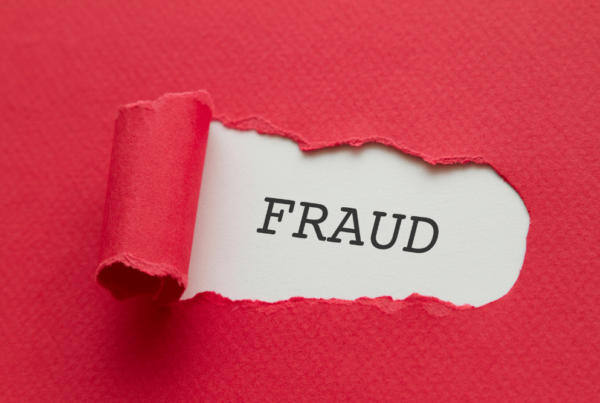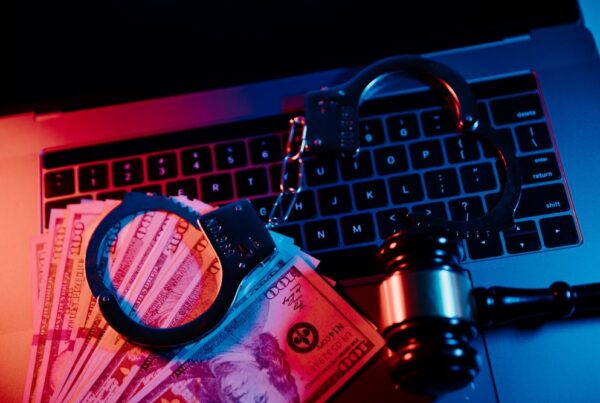The Coronavirus Aid, Relief, and Economic Security (CARES) Act (Public Law 116-136) was signed into law on March 27, 2020, in response to the economic hardships many faced during the COVID-19 pandemic. As one of the largest economic relief packages in United States history, the CARES Act and the various economic assistance it provides to individuals and businesses adversely impacted by the COVID-19 pandemic remain vulnerable to fraudulent activity. The CARES Act, however, includes a variety of provisions to detect and prevent fraud.
Oversight and Accountability
The CARES Act established several oversight bodies to monitor the disbursement and use of government funds to ensure they are being used appropriately and guard against waste, abuse, and outright fraud.
The Pandemic Response Accountability Committee (PRAC)
The PRAC is a committee of twenty federal inspectors general (IGs) who are charged with overseeing the implementation and use of funds related to the COVID-19 pandemic. The PRAC is responsible for conducting audits, investigations, and other oversight activities to prevent and detect waste, fraud, abuse, and mismanagement of pandemic relief programming and funds. The PRAC also reports its findings and recommendations to Congress and the public (https://www.pandemicoversight.gov).
The Special Inspector General for Pandemic Recovery (SIGPR)
The SIGPR is responsible for conducting, supervising, and coordinating audits and investigations of loans, loan guarantees, and other investments made by the Secretary of the Treasury under any program established by the Secretary, as well as the management by the Secretary of any program established under the CARES Act, all to safeguard the public’s tax dollars. On June 2, 2020, Brian D. Miller, a former federal prosecutor, was confirmed by the U.S. Senate to be the Special Inspector General for Pandemic Recovery.
The Congressional Oversight Commission
The Congressional Oversight Commission also oversees the implementation and use of funds provided under the CARES Act. The Commission is responsible for conducting oversight hearings, providing reports to Congress and the public, and making recommendations to improve the effectiveness of the federal response to the COVID-19 pandemic.
The Government Accountability Office (GAO)
The CARES Act provides additional funding to the GAO to conduct audits, investigations, and other oversight activities related to the COVID-19 pandemic. The GAO is also required to report to Congress, the heads of executive agencies, and the public on its findings and recommendations.
Internal Controls and Reports Requirements
In addition to the oversight bodies, the CARES Act also establishes numerous internal controls to ensure that relief funds provided to individuals and businesses under the CARES Act are used appropriately and efficiently. Some of the key internal controls required by the CARES Act include:
- Certification and reporting requirements – require fund recipients to certify that funds will be used for allowable purposes and to report on their use of funds. Recipients of funds under the Paycheck Protection Program (PPP), for example, are required to certify that the funds will be used to retain workers and maintain payroll, and to provide documentation of how they utilized funds toward these ends.
- Documentation and record-keeping requirements – require recipients of funds to maintain appropriate documentation and records to support their use of the funds. For example, Provider Relief Fund recipients are required to maintain records of their expenses and lost revenues attributable to the COVID-19 pandemic.
- Clawback provisions – allow the government to recover funds that were not used for allowable purposes. For example, the PPP includes a provision that will enable the government to recover funds that were used for unauthorized purposes.
Federal Data Analytics
The CARES Act also provides funding to federal agencies to improve their data analytics capabilities to identify and prevent fraud. This includes using advanced analytics techniques such as machine learning algorithms and predictive modeling to identify potential fraud and misuse of pandemic relief funds. This includes integrating insights from open-source intelligence and dark web threat intelligence and reconnaissance, according to Brian D. Miller, the Special Inspector General for Pandemic Recovery. The aim is to maximize the use of data analytics to create a growing data set that can be shared amongst the entire inspector general community to more effectively identify fraud, waste, and abuse of funds disbursed under the CARES Act. However, as the capabilities of data collection and analysis grow, so too do the concerns about the future of such oversight using new technologies, such as artificial intelligence.
Whistleblower Protections for CARES Act Fraud
Section 3610 of the CARES Act includes provisions to protect whistleblowers who report fraud or misuse of funds. This includes protection from retaliation and monetary rewards for individuals who provide information that leads to the recovery of funds.
Specifically, this section protects employees of entities that receive CARES Act funds who report a violation of any federal law, rule, or regulation related to the use of those funds, or who report gross mismanagement, gross waste of covered funds, an abuse of authority, or a substantial and specific danger to public health or safety related to the use of covered funds. This section of the CARERS Act prevents recipient-employers of covered funds from taking adverse action against an employee who makes such a report, including discharging, demoting, or otherwise discriminating against the employee.
Individuals who experience retaliation for reporting a violation or mismanagement of funds related to a covered program can seek recourse by filing a complaint with the Department of Labor within 180 days of the alleged retaliation. The Department of Labor is authorized to investigate complaints of retaliation and can order an employer to take corrective action if they determine that retaliation actually occurred.
Overall, the whistleblower provisions of the CARES Act are designed to encourage individuals to report potential violations and mismanagement of funds while also providing them with protection against retaliation. These provisions help to ensure the integrity of the programs and funds established by the Act and promote transparency and accountability in their administration.
Prosecution of Fraud under the CARES Act
In the first two years since its passage, the CARES Act provisions designed to detect fraud along with the coordination amongst numerous governmental bodies, have led to the investigation and prosecution of many suspected fraudsters. Several government agencies are responsible for investigating and prosecuting fraud under the CARES Act, depending on the specific program or funds involved. For example, the Small Business Administration (SBA) is responsible for investigating and prosecuting fraud related to the Paycheck Protection Program (PPP) and Economic Injury Disaster Loans (EIDL). The SBA’s Office of Inspector General (OIG) is tasked with investigating potential fraud, waste, and abuse related to these programs. The Department of Justice (DOJ) investigates and prosecutes fraud related to other programs and funds established by the CARES Act, such as the Provider Relief Fund and the Coronavirus Relief Fund.
The DOJ has also established a COVID-19 Hoarding and Price Gouging Task Force to investigate and prosecute individuals and companies engaged in hoarding or price gouging of critical supplies related to the COVID-19 pandemic. Additionally, other government bodies such as the Securities and Exchange Commission (SEC), the Federal Bureau of Investigation (FBI), and the Internal Revenue Service (IRS) may also be involved in investigating and prosecuting fraud related to the CARES Act.
The coordination and collaboration among government agencies and law enforcement have gained momentum since the passage of the CARES Act. According to the DOJ, as of March 2022, criminal and civil enforcement efforts to combat fraud under the CARES Act have resulted in over 1,000 defendants criminally charged, with alleged losses totaling over $1.1 billion, the seizure of $1 billion in Economic Injury Disaster Loan proceeds, and hundreds of civil investigations into nearly 2,000 individuals and businesses for alleged misconduct related to pandemic relief loans totaling more than $6 billion in losses.






Recent Comments